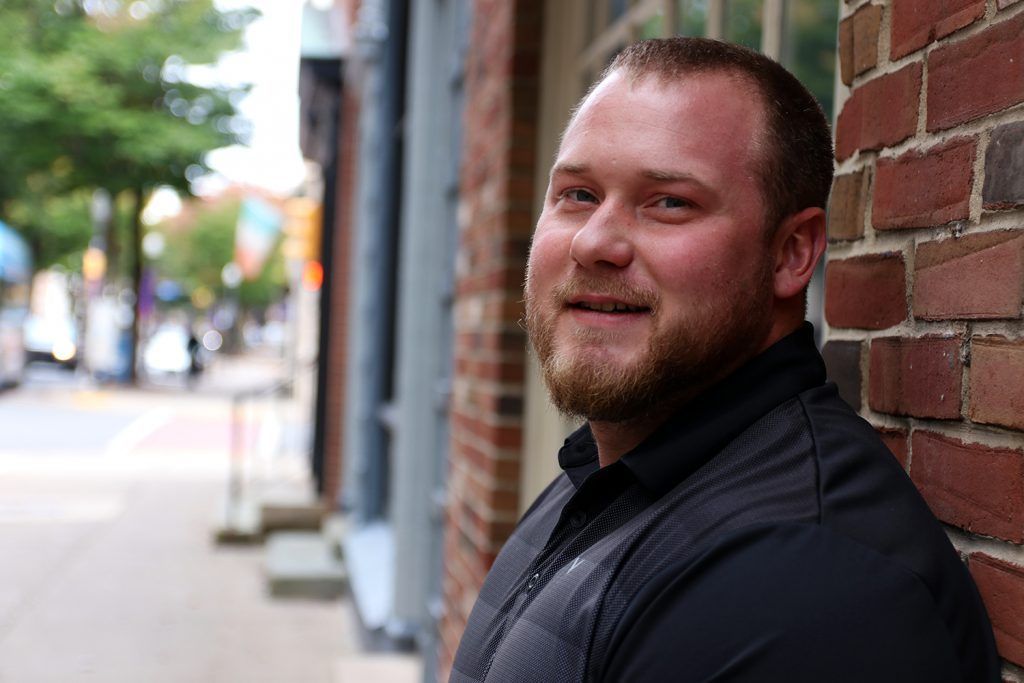
September marked National Recovery Awareness Month, but for certified recovery specialists working through the West Branch Drug and Alcohol Commission, awareness and education is a year-round, day-to-day mission.
The three currently on staff are doctors without degrees, therapists without licenses. They have been in the depths of addiction and have found a way out. They work now to help others find their own way out of addiction and into a new life.
“I was miserable when I was using,” Sasha Powell says, “… but I didn’t think I had a problem.”
As the child of recovering addicts who themselves were the children of addicts, Powell believes addiction is a hereditary disease.
“It definitely is a disease that can never be cured,” adds Taylor Falk. “My question is, are we born with this disease?”
So far, he says, there is no scientific evidence to answer his question with a definitive yes or no.
But there comes a point when it’s “no longer a voluntary choice. It changes the brain chemically,” Falk says.
In that sense, drug addiction is similar to alcoholism, which was declared a disease in 1956. Genetic and environmental components also play a role in alcoholism, according to the Mayo Clinic.
“But there is treatment,” says Joseph Lee, another of West Branch’s certified recovery specialists.
Recovery resources
In many cases, rehabilitation facilities provide a starting point.
“For me, I definitely needed a rehab facility,” Powell says, adding she needed a second stint to help her realize her situation.
“My life was unmanageable,” she says. “I definitely needed a 12-step program.”
Narcotics Anonymous and Alcoholics Anonymous are two groups that use the 12-step program to help people trying to break free of their addictions. In fact, the original 12-step program originated with Alcoholics Anonymous.
A 12-step, fellowship-based program was instrumental for Falk.
“I do think rehabs work, but not for me. I don’t really stay there long enough,” he says.
Instead, he committed to a fellowship program that involved introspective practices such as “being honest with yourself first.”
He likened it to “telling on yourself” and said facing his internal emotions, doubts and thoughts in a more open manner worked for him.
“You can’t leave it bottled up,” Falk says.
‘Power greater than us’
The program also invokes a spiritual component.
“When I got sober, I said a prayer and asked my higher power for help,” Lee says.
What followed was, he believes, a miracle in the form of divine intervention.
“For a lot of us, prayer is a part of our every-day life,” he adds. “It’s not so much religion as it is believing there is a power greater than us.”
Lee believes that higher power puts people and strategies before him and it’s “up to us” to recognize and make use of them in order to grow and overcome.
“Helping others is a huge part of it,” he says, “especially with all of the experience we have.”
He and his fellow certified recovery specialists meet people in the hospitals who are in need of help and assist them in the road to recovery.
People who are in jail or rehab also have immediate access to meetings conducted either by staff or by people who come into those locations specifically to offer support.
Certified recovery specialists like those from West Branch also visit hospitals, answer questions and “share what we did,” Lee says.
By attending meetings, those in recovery can find a sponsor, a support group and a home group, Powell says. The home group is derived by picking “a meeting you like best. They become your family.”
‘It’s about education’
The recovery specialists also go out into the community to share their knowledge and talk to individuals. They’ve attended First Friday in Williamsport and have witnessed a certain level of stigma at times.
“Some people don’t really know how to talk to us,” Powell says. “But the more people see you do good, the more the stigma and discrimination lessens. It’s all about education.”
The best way the community-at-large can support those in recovery is to “be there for us,” Lee says. Addiction is a disease “I have inside of me. The symptoms are still there, but it’s in remission.”
Those who haven’t made it to “remission” still deserve support “even if we show up at the ER and relapse six times,” he adds.
Substance abuse disorders don’t discriminate, Lee says, and those who are in recovery “can be a living example.”
“We’re sober and helpful. There is hope here. I changed.”



